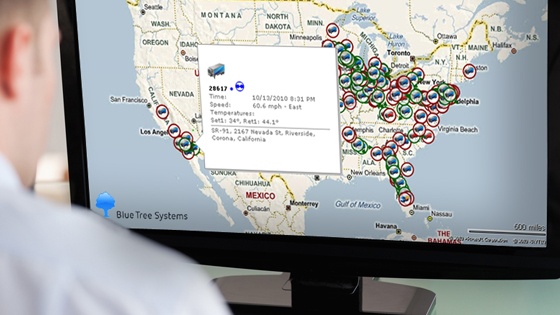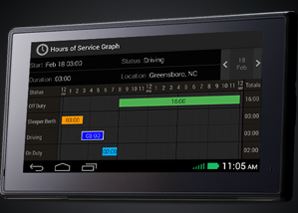Understanding New Electronic Driver Log Regulations and How They Will Affect Your Fleet
The Federal Motor Carrier Safety Administration (FMCSA) has announced a law mandating truck operators use electronic logging devices for documenting hours of service. In a release published last December, FMCSA stated in an effort to improve road safety, technology will be utilized to replace paper driver’s logs. According to the announcement, the change from paper and pencil logging to electronic logging devices (ELDs) is estimated to save more than $1 billion along with reducing fatalities and injuries.
This law will take into effect December 2017.
So what are ELDs? They automatically capture driving time along with engine hours, vehicle miles, and location.
Federal laws already have been in place establishing hours-of-service for commercial drivers to prevent too much time behind the wheel which can lead to fatigue and higher risk for accidents. However, while documenting hours of service is an expected aspect of driving a truck, having to use an ELD is another story.
The Industry’s Reaction to Mandatory ELDs
This law has its backers and detractors.
Opponents from the industry do not see the benefit for mandating electronic logs citing the devices create opportunities for harassment. A recent Wall Street Journal cites a valid point. Having constant access, bosses can encroach on driver’s boundaries. Here is an example: A manager ordering a driver back on the road because they see the trucker has not reached the drive time limit. The truck driver in question has perfectly legitimate reason for stopping for the day ??? fatigue, illness, or bad weather.
The good news from this bad situation is that this upcoming FMCSA legislature includes provisions to protect drivers from harassment. Fines up to $11,000 can be issued to businesses that encourage or coerce drivers to engage in violations that risk driver or public safety.
Despite some concerns, many experts believe the ???pros??? outweigh the ???cons??? in the court of electronic logging devices. Here are just a few benefits for electronic logging devices:
- Less time spent on recording, collecting, and organizing paper files
- Drivers can see exactly how much time they have for hours of service
- Faster road inspections from law enforcement
- Better protection during possible legal actions
Overall improvement in fleet efficiency is another benefit. Truck location, fuel monitoring, and important data are collected in standard ELDs and can be used by fleet managers and drivers to prepare a maintenance plan. (Click here to learn about other tools to create a fleet maintenance plan.)
How to Comply with Electronic Logging Devices Law
The industry has a little less than two years to complete the switch from paper records to electronic. Although there is time left, start planning for the switch now to allow for wiggle room to comfortably make the needed adjustments.
CSTK is proud to offer top quality electronic logging devices to not only record and maintain hours-of-service, but also provide fuel and location management.
R:COMfrom Blue Tree Systems offers product features that can be selected to meet your specific operational requirements. With a variety of options, R:COM offers solutions for every fleet, with options for trailers, reefer units, straight trucks and other vehicles.
Questions? Concerns?
Do you have questions on the approaching ELD law coming into effect December 2017? Feel free to contact us for any questions on regulations or installation.



